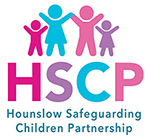Child Sexual Abuse & Exploitation
Child Sexual Exploitation (CSE) is a form of child sexual abuse. It can take many forms including peer sexual exploitation, inappropriate relationships, organised networks and trafficking such as paedophile and exploitative rings. Child exploitation can take many forms including peer sexual exploitation, inappropriate relationships, organised networks and trafficking such as paedophile and exploitative rings. It is against the law and a form of sexual abuse that puts the child at risk of severe physical, emotional and psychological damage.
Often someone will use children by giving them money, gifts, food, alcohol, accommodation, power and/or status in exchange for them engaging in sexual activities. Children or young people may be tricked into believing they’re in a loving, consensual relationship. They might be invited to parties and given drugs and alcohol. People who do this want young people to think they are a friend, or a boyfriend or girlfriend.
It could even be someone they have spoken to online. They want to gain their trust to get power over them and the child may be asked to do something that makes them feel uncomfortable for example being persuaded to post sexual images on the internet.
What signs can a parent look for?
Teenage behaviour is changeable but more common signs of CSE are:
- misusing alcohol or drugs
- mood swings, aggressive, violent, anxious, detached, secretive
- unexplained bruises/cuts/injuries
- returning home late or going missing.
- truanting or not engaging in education, reduced achievements.
- having unaccounted for gifts or possessions.
- new boyfriend/girlfriend/friends
- new ‘friends’ possibly associated with exploitation/gangs (not always known)
- sexually transmitted infections/pregnancy
- inappropriate sexualised behaviour
- increased use of mobile phone and /or internet
- increased or new criminal activity
- being collected /dropped off in unknown cars/taxis
CSE is a crime It is against the law and as any form of sexual abuse puts the child at risk of severe physical, emotional and psychological damage.
Forming close and positive relationships with children can make them less vulnerable. Making sure they feel good about themselves can stop them falling into abusive relationships. Know where your children are and be familiar with their friends and daily activities. However, even with the best parents and carers in the world, some children will be abused in this way. Parents and carers can often feel powerless to stop what can be a difficult and dangerous situation.
Other Resources
There are many other organisations that could also help, and a lot of information online. The following websites have information about issues relating to CSE, including information about handling relationships online and relationship abuse.
HSCB Guide to Keeping a Young Person Safe
- Parents and Carers Guide to Keeping a Young person Safe
- Parents and Carers Guide to Keeping a Young person Safe – Polish
- A young persons guide to keeping safe
NSPCC Pants Rule
- NSPCC Pants Rule Guide for Parents and Carers – English
- NSPCC Pants Rule Guide for Parents and Carers – Polish
- NSPCC Pants Rule Guide for Parents and Carers – Latvian
- NSPCC Pants Rule Guide for Foster Carers
NSPCC PANTS Rule Guide (Children)
Operation Makesafe
Hounslow Police have launched joint initiatives with Hounslow Council and the HSCP which calls on the assistance of the local business community to help identify potential victims of child sexual exploitation (CSE).
Operation Makesafe will seeks to raise awareness within the hospitality, transport and licensed premises trades around the possible warning signs to look out for when coming into contact with young people they believe may be at risk of sexual exploitation.
Parents Against Child Exploitation
(Pace) is the leading national charity working with parents and carers whose children are sexually exploited. Pace works alongside parents and carers of children who are – or are at risk of being – sexually exploited by perpetrators external to the family.
Pace is a unique resource that helps parents across the UK understand what is happening to their child and how parents are the prime agents in helping their child exit exploitative relationships. It does this by offering:
- One-to-one telephone advice and support to parents
- Facilitating meetings with similarly-affected parents for peer support
- Advising how to establish rights as parents and work in partnership with statutory agents such as police and social workers
- Advice and support when pursuing disruption and prosecution of the perpetrators of child sexual exploitation
- Befriending scheme
More information can be found on PaceUK website
Worried about a child?
If you feel that a child is at immediate risk of harm please call the Police on 999.
Or contact your local Police on 101 at any time.
Call: Hounslow Front Door on 020 8583 6600 (option 2)
Email: earlyhelp@hounslow.gov.uk
or childrensocialcare@hounslow.gov.uk
Out of hours: After 5pm – 9am weekdays or weekends telephone 020 8583 2222 and ask to speak to the duty social worker
You do not have to give your name and your conversation will be treated confidentially.
